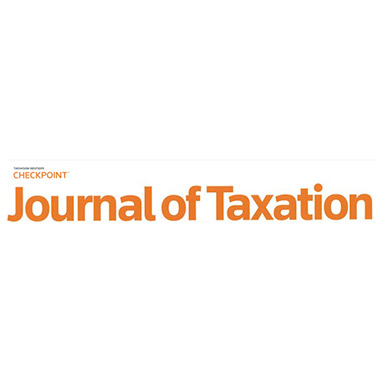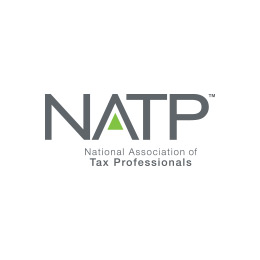The Internal Revenue Service (IRS) has implemented various initiatives to encourage U.S. taxpayers with undisclosed foreign financial assets to comply with their tax obligations. One of these is the Streamlined Domestic Offshore Procedures (SDOP).
Filing your taxes can be a complex process, especially if you have foreign assets. However, you can be held financially and criminally liable if you violate the rules. Fortunately, the IRS recognizes that honest mistakes happen. SDOP was developed specifically to help those who have non-willfully failed to report their taxes come back into compliance. Through this program, you can avoid the worst penalties associated with unreported taxes. Our team is standing by to help determine if this program suits your situation.
Call McCormick Tax Law at (215) 630-0861 to get your free case review with our attorneys for Streamlined Domestic Offshore Procedures.
Understanding the IRS’s Streamlined Domestic Offshore Procedures (SDOP)
The Internal Revenue Service (IRS) introduced the Streamlined Domestic Offshore Procedures (SDOP) back in 2012 as part of its broader effort to address non-compliance among U.S. taxpayers with foreign financial assets. The SDOP is specifically designed for taxpayers who are citizens or legal residents of the United States and have failed to report foreign financial assets, as well as pay all tax due in respect of those assets but have acted non-willfully.
If you think you are eligible for the SDOP, there are several steps that you need to follow. Fortunately, our attorneys for Streamlined Domestic Offshore Procedures can help determine if you qualify and prepare your filing. First, you must file amended tax returns, with all required information returns, for each of the most recent three years for which the U.S. tax return due date has passed. Second, you will need to file FBARs, Report of Foreign Bank and Financial Accounts, for each of the most recent six years for which the FBAR due date has passed.
Along with these filings, you must submit a signed statement certifying your eligibility for the SDOP and that your failure to report all income, pay all taxes, and submit all required information returns, including FBARs, was due to non-willful conduct. This means that the taxpayer must be able to demonstrate that their failure to comply was not intentional or a result of gross negligence.
Determining Eligibility for Streamlined Domestic Offshore Procedures
To qualify for the SDOP, a taxpayer must meet several criteria. First, the taxpayer must be a U.S. citizen or resident. Second, they should have failed to report income from a foreign financial asset and pay tax as required by U.S. law and might have failed to file an FBAR FinCEN Form 114 regarding their foreign financial asset. Importantly, their failure to comply must be due to non-willful conduct, which the IRS has its own method of determining.
Residency Requirements
Eligibility for SDOP is first determined based on residency requirements. A taxpayer is considered to meet the residency requirement if, in any one or more of the most recent three years for which the U.S. tax return due date has passed, they did not have a U.S. abode and the individual was physically outside the United States for at least 330 full days.
In contrast, non-residents must meet more specific conditions as outlined by the IRS. Additionally, the taxpayer must have previously filed a U.S. tax return, if required, for each of the most recent three years for which the tax return due date has passed. If the taxpayer has not filed as required, they will need to file delinquent returns under SDOP to be considered eligible.
Non-Willful Requirement
Non-willful conduct is central to the SDOP. The IRS defines non-willful conduct as conduct that is due to negligence, inadvertence, or mistake, or conduct that results from a good faith misunderstanding of the requirements of the law. Simply put, if a taxpayer did not knowingly or intentionally violate the law, their conduct could be considered non-willful. However, the burden of proof lies with the taxpayer, who must provide sufficient evidence to substantiate their claim of non-willfulness.
Determining non-willfulness is not simply a matter of self-certification. When assessing a taxpayer’s non-willful conduct, the IRS considers several factors. The background of the taxpayer is one such factor. The taxpayer’s education, experience, and sophistication level are essential in determining whether their conduct was non-willful. If a taxpayer has extensive financial knowledge or experience, it might be harder for them to prove non-willfulness compared to someone with less experience.
Another factor that the IRS considers is the taxpayer’s previous compliance history. If a taxpayer has a history of non-compliance with tax laws, it might be challenging to prove that their failure to comply was non-willful. This is because their previous non-compliance might demonstrate a pattern of behavior that could indicate willfulness rather than a genuine mistake or oversight.
Additionally, the source of the foreign income and whether it was legal or illegal can impact the determination of non-willfulness. For instance, if the foreign income was obtained illegally, it might be more challenging for the taxpayer to argue that their non-compliance was not willful. On the other hand, if the foreign income was obtained legally, and the taxpayer made a genuine mistake in failing to report it, they will likely have a stronger case for non-willfulness.
Penalties You Can Avoid Through Streamlined Domestic Offshore Procedures
Under the regular IRS procedures, taxpayers with undisclosed foreign financial assets can face several severe penalties. These include the “failure to file” penalty, “failure to pay” penalty, accuracy-related penalties, and penalties for failure to file information returns or FBARs. The penalties can range from 20% to 75% of the unpaid tax, and additional penalties can be up to $10,000 per violation for not filing information returns or FBARs. Individuals can also face criminal prosecution and prison time in addition to these financial penalties.
The primary benefit of the SDOP is the avoidance of these severe penalties. The taxpayer is usually required to pay only a penalty equal to 5% of the highest aggregate balance or value of the taxpayer’s foreign financial assets subject to the penalty during the years in the covered tax return period and the covered FBAR period if they qualify. This penalty is also separate from any tax or interest that might be due and payable.
Overall, the SDOP allows eligible taxpayers to comply with their U.S. tax obligations without fear of criminal prosecution or excessive penalties. Do not wait in the hope that the IRS will overlook the violation. The IRS has stepped up its investigations to root out non-compliance in recent years. SDOP, however, provides a way out of trouble.
Our Attorneys for Streamlined Domestic Offshore Procedures Can Help You Get Back into Compliance
For a free case evaluation, contact our attorneys for Streamlined Domestic Offshore Procedures at McCormick Tax Law by calling (215) 630-0861.










